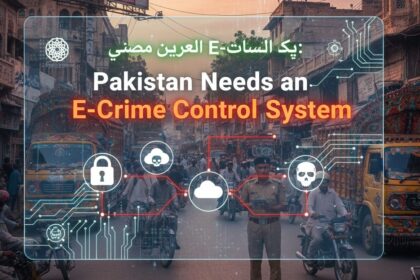Bridging the Gap Between Educational Institutions and Industry: A Path to Progress
Nadeem Iqbal, Professor National Skills University Islamabad, Pakistan
The gap between educational institutions and industry poses a significant challenge to students’ employability and industrial growth. Educational programs often prioritize theoretical knowledge, while industries demand practical, job-ready skills. Theory is essential, but industries need workers who can immediately contribute to workplace tasks. Industries adopt new tools and technologies, such as artificial intelligence or data analytics, at a rapid pace, yet educational institutions struggle to update curricula quickly enough, leaving graduates unprepared for current market needs. Students typically lack hands-on experience with real-world industrial problems before graduation, limiting their readiness for professional roles. Educational institutions focus on knowledge and research, whereas industries emphasize productivity and immediate problem-solving, creating a misalignment that hinders effective workforce preparation.
The National Skills University (NSU) Islamabad is addressing this gap through targeted initiatives. NSU fosters collaboration between industry and educational institutions, where industries provide feedback on skill requirements, and the university supplies trained graduates. This partnership ensures curricula align with market demands, such as digital finance or online business tools. NSU establishes direct links between students and companies, enhancing job opportunities and facilitating smoother career transitions. Its one-year Supervised Industrial Training (SIT) program provides students with practical exposure to industrial environments, allowing them to tackle real challenges, such as software design or customer service optimization. Through joint initiatives, students apply classroom learning to solve industry problems, preparing them for the job market. For example, NSU’s BS Fintech and E-Commerce program equips students with practical skills tailored to industry needs, ensuring graduates are ready to contribute effectively.
Soft skills play a critical role in bridging the gap between educational institutions and industry. Many graduates struggle with communication, teamwork, and problem-solving in professional settings, which impacts their performance. Industry projects are cross-functional, requiring teamwork and coordination, while educational institutions often emphasize individual work, leaving students unprepared for collaborative environments. Companies value individuals who can take ownership and lead small teams, yet structured leadership training is rarely provided in academic programs. Punctuality, accountability, and interpersonal respect are essential in industry but are seldom explicitly taught in most curricula. This gap in soft skills limits graduates’ ability to succeed professionally, as industries value these competencies as much as technical expertise.
NSU’s programs actively address these challenges by integrating technical and soft skills training. The BS Fintech and E-Commerce program not only teaches technical skills, such as online payment systems and digital marketing, but also emphasizes soft skills development. Communication workshops, team-based projects, and leadership training prepare students for cross-functional roles. During the SIT program, students work in industry settings alongside teams, enhancing their communication and accountability skills. Joint initiatives provide opportunities to solve real industry problems, strengthening soft skills like teamwork and leadership. These efforts ensure students are equipped to meet industry expectations, from punctuality to effective collaboration.
NSU’s initiatives create a robust bridge between educational institutions and industry. Through industry feedback, direct company connections, and practical training, students are prepared for the job market. Soft skills training equips them with the professional competencies needed for success. These efforts align educational outcomes with industry needs, ensuring graduates can contribute effectively to workplaces.
Bridging the gap between educational institutions and industry is essential for enhancing graduate employability and industrial progress. NSU’s programs, such as SIT and soft skills training, equip students with practical and professional skills. These initiatives foster closer ties between educational institutions and industry, laying the foundation for a skilled and competitive workforce.











